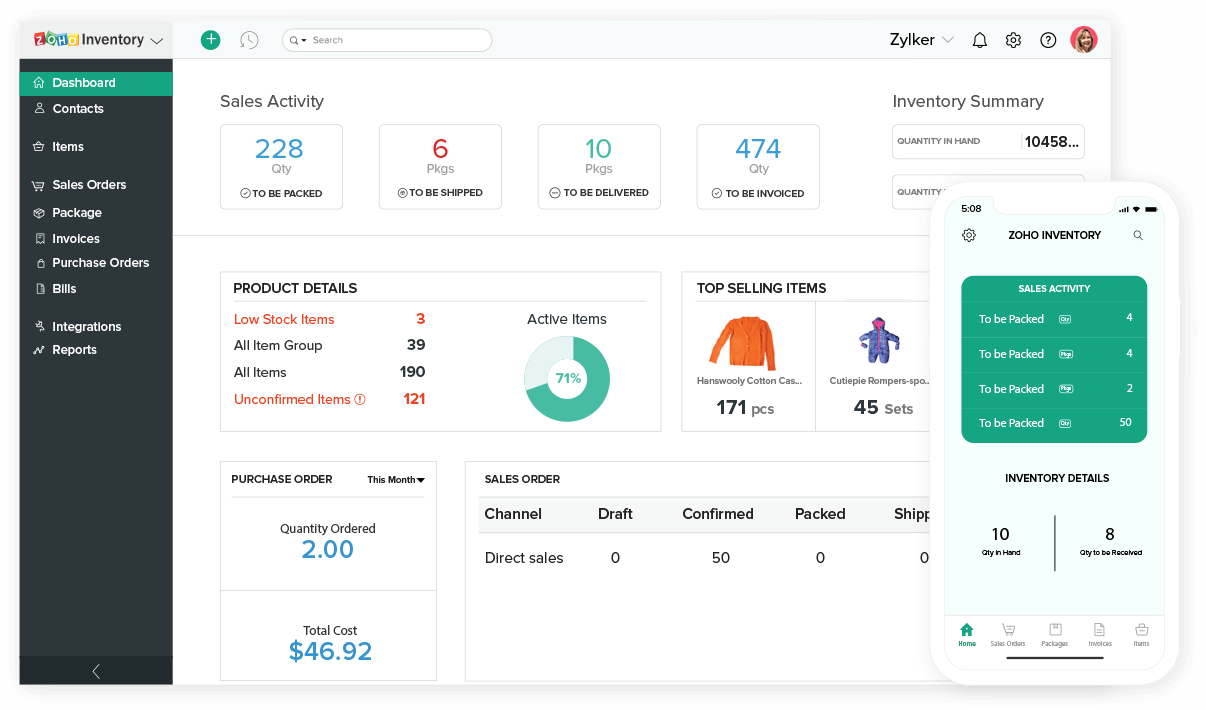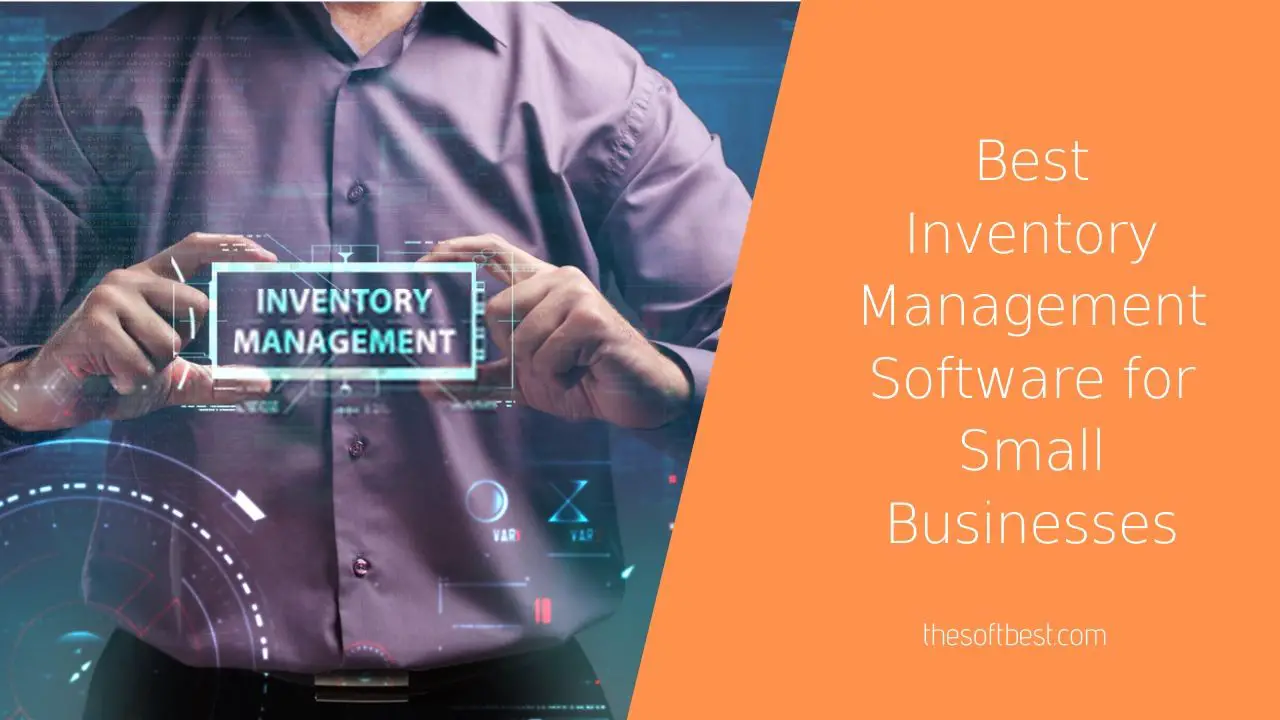Best inventory management software small business – Best inventory management software for small businesses is essential for streamlining operations, reducing costs, and increasing efficiency. This guide will provide you with the key features to consider, the benefits of using inventory management software, a comparison of popular software options, and best practices for implementation. Whether you’re just starting out or looking to upgrade your current system, this guide has everything you need to make an informed decision about the best inventory management software for your small business.
Inventory management is a critical aspect of running a successful small business. It involves tracking the flow of goods from the point of purchase to the point of sale, ensuring that you have the right products in stock to meet customer demand. However, managing inventory can be a complex and time-consuming task, especially for small businesses with limited resources.
Introduction
Effective inventory management is crucial for small businesses to maintain a healthy cash flow and ensure customer satisfaction. It involves optimizing the flow of goods, from the point of purchase to the point of sale, to minimize waste and maximize profitability.
Small businesses often face challenges in managing inventory effectively due to limited resources, fluctuating demand, and supply chain disruptions. These challenges can lead to overstocking, which ties up cash and increases the risk of obsolescence, or understocking, which can result in lost sales and dissatisfied customers.
Key Features to Consider: Best Inventory Management Software small business
Choosing the right inventory management software is crucial for small businesses. Here are some essential features to look for:
Real-time inventory tracking: Monitor stock levels across multiple locations and channels in real-time, providing accurate visibility and preventing overstocking or understocking.
Purchase Order Management
- Create and manage purchase orders, track supplier performance, and automate order fulfillment.
- Streamline the procurement process, reducing lead times and improving efficiency.
Reporting and Analytics
- Generate customizable reports on inventory levels, sales trends, and supplier performance.
- Identify patterns, optimize inventory levels, and make data-driven decisions.
Integration with other systems
- Integrate with accounting, e-commerce, and shipping software to streamline operations.
- Automate data sharing and eliminate manual data entry, saving time and reducing errors.
Mobile access
- Access inventory data and manage tasks from anywhere, using a smartphone or tablet.
- Stay informed and make timely decisions, even when away from the office.
Benefits of Using Inventory Management Software

Inventory management software can provide a range of benefits for small businesses, helping them streamline operations and improve efficiency.
One of the key benefits is improved accuracy. Manual inventory tracking is prone to errors, such as incorrect counts, lost records, and outdated information. Inventory management software automates the process, reducing the risk of human error and ensuring that inventory levels are always up-to-date.
Reduced Costs
- Inventory management software can help businesses reduce costs by optimizing inventory levels and minimizing waste.
- By accurately tracking inventory, businesses can avoid overstocking, which can lead to excess inventory costs and potential losses due to spoilage or obsolescence.
- Additionally, inventory management software can help businesses identify slow-moving items and implement strategies to reduce their inventory levels, freeing up cash flow and reducing storage costs.
Increased Efficiency
- Inventory management software can significantly increase efficiency by automating tasks such as inventory tracking, order processing, and reordering.
- This frees up employees to focus on other value-added activities, such as customer service, sales, and marketing.
- Additionally, inventory management software can provide real-time visibility into inventory levels, allowing businesses to make informed decisions about restocking and avoid stockouts.
Comparison of Popular Software Options
When selecting the ideal inventory management software for your small business, it’s crucial to compare the offerings of various providers. This table presents a comprehensive overview of the top software options, highlighting their key features, pricing, and user reviews.
Software Comparison Table
| Software | Key Features | Pricing | User Reviews |
|---|---|---|---|
| Option 1 |
|
$X per month | 4.5/5 stars (based on 100 reviews) |
| Option 2 |
|
$Y per month | 4.0/5 stars (based on 50 reviews) |
| Option 3 |
|
$Z per month | 4.2/5 stars (based on 75 reviews) |
By carefully examining this table, you can make an informed decision that aligns with the specific needs and budget of your small business.
Implementation and Best Practices
Successful implementation of inventory management software requires careful planning and execution. Here are some guidelines to ensure a smooth transition:
1. Define Clear Objectives: Determine the specific goals you aim to achieve with the software, such as improving inventory accuracy, reducing waste, or optimizing order fulfillment.
Data Accuracy, Best inventory management software small business
- Establish a process for regular inventory counts to ensure data accuracy.
- Use barcode scanners or RFID tags to automate data entry and minimize errors.
- Set up alerts to notify you of discrepancies or unusual activity.
Process Optimization
- Review your existing inventory processes and identify areas for improvement.
- Configure the software to streamline tasks such as order processing, shipping, and receiving.
- Automate repetitive tasks to save time and reduce manual labor.
Vendor Management
- Establish clear communication channels with vendors to ensure timely deliveries and accurate inventory updates.
- Use the software to track vendor performance and identify potential issues.
- Negotiate favorable terms and discounts based on accurate inventory data.
Customer Satisfaction
- Provide customers with real-time inventory visibility to enhance their shopping experience.
- Use the software to track customer orders and provide accurate delivery estimates.
- Respond promptly to customer inquiries and resolve any inventory-related issues.
Case Studies and Success Stories
Numerous small businesses have experienced remarkable success by leveraging inventory management software. These real-life examples showcase the transformative impact of such software in overcoming specific challenges and driving business growth.
Successful Implementation at “XYZ Boutique”
XYZ Boutique, a small clothing store, faced challenges with stock accuracy and inventory visibility. By implementing an inventory management system, they gained real-time insights into their inventory levels, reduced stock discrepancies, and improved customer satisfaction through accurate order fulfillment.
Inventory Optimization for “ABC Manufacturing”
ABC Manufacturing, a small-scale manufacturer, struggled with inefficient inventory management, leading to overstocking and production delays. With the help of inventory management software, they optimized their inventory levels, reduced carrying costs, and streamlined production processes, resulting in increased efficiency and profitability.
Conclusion

Effective inventory management is crucial for small businesses to optimize operations, reduce costs, and enhance customer satisfaction. Implementing a robust inventory management software can streamline processes, provide real-time visibility, and empower data-driven decision-making.
We recommend exploring reputable sources like industry blogs, white papers, and online forums to further your understanding of inventory management software. By leveraging these resources, small businesses can make informed choices and select the best software solution for their specific needs.
Conclusive Thoughts

Choosing the right inventory management software can help you overcome these challenges and improve the efficiency of your small business. By following the tips and advice in this guide, you can select the best software for your needs and start reaping the benefits of improved inventory management.
Essential Questionnaire
What are the key features to consider when choosing inventory management software?
When choosing inventory management software, there are several key features to consider, including:
- Ease of use
- Scalability
- Integration with other business systems
- Reporting and analytics
- Customer support
What are the benefits of using inventory management software?
Inventory management software can provide a number of benefits for small businesses, including:
- Improved accuracy
- Reduced costs
- Increased efficiency
- Improved customer satisfaction
- Better decision-making
What are some popular inventory management software options for small businesses?
There are a number of popular inventory management software options available for small businesses, including:
- Shopify
- Square
- Zoho Inventory
- Fishbowl
- NetSuite